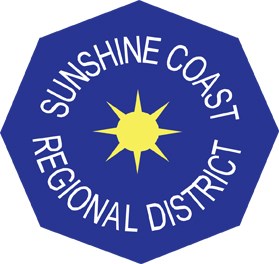With the 2018 budget finalized, Sunshine Coast Regional District (SCRD) electoral areas will see an increase in property taxes this year, with an average increase of 4.35 per cent from 2017 for all property classes.
“I commend staff on a terrific job on our budget ... and to our directors on this board table, good job, well done,” said acting chair Ian Winn, director for West Howe Sound, at the board meeting where the budget was unanimously approved.
Residential property taxes increased across the board. Area A saw an increase of 3.27 per cent, Area B – Halfmoon Bay’s taxes increased 4.68 per cent, Area D – Roberts Creek saw a 4.94 per cent increase, Area E – Elphinstone’s increased by 3.73 per cent and Area F – West House Sound taxes went up 4.01 per cent. The District of Sechelt’s taxes went up 6.42 per cent, the Town of Gibsons saw an increase of 5.44 per cent and 6.31 per cent for the Sechelt Indian Government District (SIGD). SIGD, Sechelt and Gibsons’ SCRD taxes make up only a part of their tax bill.
Residential increases will vary for individual properties, since they are based on property assessments. This year, property values increased to the tune of 16 per cent.
SCRD’s operating budget for 2018 climbed to $39.1 million – an increase of $2 million (5.4 per cent) from last year’s actual operating budget of $37.1 million.
Tina Perreault, SCRD’s chief financial officer, said operating costs rose this year because of wages from collective bargaining increases, new staffing positions to support water projects and ports maintenance. Projects carried forward from 2017 also added to the budget. Another increase came by way of funding for the Sunshine Coast Regional Economic Development Organization (SCREDO).
In 2016, SCREDO was funded through taxation, but because of a delay in launching the entity, it wasn’t taxed in 2017 since there were leftover funds from 2016. “It kind of deflated the 2017 budget and so now they are taxing for it in 2018, and that’s over $155,000” for the rural areas, Perreault said.
Another major operational expense is the 15 per cent increase in transit taxes, totalling $2.6 million. The increase accounts for the full cost of the transit expansion project, which saw the addition of six new buses and hourly service between Sechelt and Langdale.
The sooner-than-anticipated closure of the Sechelt landfill has also meant raising taxes for that service by almost 21 per cent to make up for a portion of the financial shortfall.
The total 2018 budget is $63 million, up from last year’s actual budget of $44.7 million, mainly because of major capital projects. In 2017, $17.5 million was budgeted for capital expenses but only $8 million was spent, leaving $10 million left over from 2017. This year, the board approved an additional $13 million in new capital expenses, more than half of which is funding for water projects.
Universal metering in the District of Sechelt and the shíshálh Nation, which will cost approximately $5.9 million, was slated to be paid via a provincial grant, but the application was unsuccessful and so will be funded via a long-term loan. Additional spending on groundwater investigation and infrastructure and water treatment plant upgrades, as well as the introduction of a rainwater harvesting rebate program, which replaces the existing toilet rebate program, bring the combined total on new projects approved for water spending to $7.7 million.
Another big item is the $450,000 in short-term debt that will be used to fix the Vaucroft dock off North Thormanby Island.



